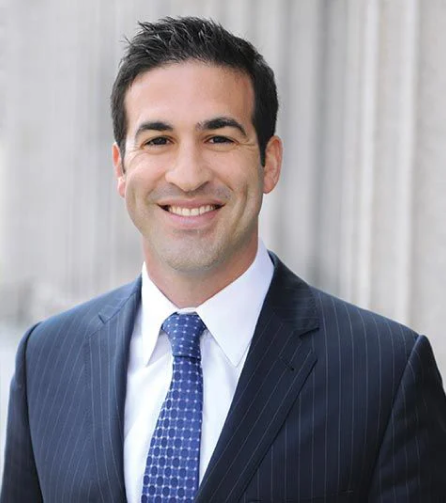Losing a loved one due to someone else’s negligence or misconduct is an unimaginable tragedy. Wrongful death refers to a legal claim brought by the family or estate of a deceased individual seeking compensation for their loss. These cases are often complex, involving intricate legal procedures that require skilled representation to ensure justice is served.
The impacts of wrongful death can be overwhelming, and the burden on the surviving family members can range from lost income to funeral expenses. If you’ve lost a loved one and don’t know where to turn, it’s crucial to contact a wrongful death lawyer who understands the legal landscape and can navigate the process on your behalf. At Glugeth & Pierguidi, P.C., our experienced team of Jersey City wrongful death lawyers is committed to helping families in New Jersey pursue fair compensation and find a sense of closure.
What Constitutes Wrongful Death in New Jersey?
Under New Jersey law, wrongful death occurs when the negligent, reckless, or intentional actions of another party cause an individual’s death. The purpose of a wrongful death case is to provide financial compensation to the surviving family members or the deceased’s estate for the losses they have suffered as a result. Several types of incidents can lead to wrongful death claims, including:
- Medical malpractice errors made by healthcare professionals that result in fatal injuries;
- Car accidents caused by negligent or reckless driving;
- Workplace accidents resulting from dangerous conditions or safety violations;
- Product liability involving defective or dangerous products that cause fatal injuries; and
- Criminal acts, such as homicide or other intentional acts leading to death.
In New Jersey, like in other states, only certain people can file a wrongful death claim. They are:
- Immediate family members, including spouses, children, and parents of the deceased,
- Financial dependents, such as stepchildren or domestic partners who were financially dependent on the deceased, and
- Personal representatives (such as the executor or administrator of the deceased’s estate) who can file on behalf of the family members.
It’s important to note that wrongful death claims must be filed within two years of the date of death, as per New Jersey’s statute of limitations. This timeline underscores the need for prompt legal action to protect your rights and secure the compensation you deserve.
Compensation in Wrongful Death Cases
In wrongful death lawsuits, compensation is meant to alleviate the financial and emotional burdens faced by the surviving family members. The damages you can recover include economic and noneconomic losses and, in certain cases, punitive damages. Economic damages include:
- Lost income that the deceased would have earned,
- Funeral and burial expenses,
- Medical bills related to the deceased’s final illness or injury, and
- Loss of financial support for the deceased’s dependents.
Economic damages represent tangible damages that are typically proven with documentary evidence. Noneconomic damages, on the other hand, include intangible damages like:
- Pain and suffering experienced by the family due to the loss,
- Loss of companionship and emotional support, and
- Emotional distress caused by the wrongful death.
Courts may award punitive damages in cases where the wrongful death resulted from particularly reckless or intentional misconduct. These damages are rare but intended to punish the wrongdoer and deter similar actions in the future.
The amount of compensation awarded in a wrongful death case depends on several factors, including the deceased’s age, earning potential, and the extent of the family’s emotional and financial impact. The court considers these elements to ensure the compensation reflects the true extent of the loss suffered. To discuss what types of damages your family may be entitled to, consult a Jersey City wrongful death attorney.
The Process of Filing a Wrongful Death Claim
Filing a wrongful death claim involves several critical steps, each requiring careful attention and experienced legal guidance.
Initial Consultation
During the first meeting, the family can expect a thorough discussion of their case’s details with an experienced attorney. This consultation is essential for gathering crucial evidence, such as medical records, witness statements, and any documentation related to the incident. During this meeting, we will assess your claim and explain the available legal options.
Investigation and Case Building
If Glugeth & Pierguidi takes on the case, we will conduct a comprehensive investigation to uncover all relevant facts. This involves collecting additional evidence, working with experts in accident reconstruction or medical malpractice, and interviewing witnesses. Building a strong case is vital to proving that negligence or misconduct directly led to the wrongful death.
Filing the Claim
The next step is to file the wrongful death claim. Remember that you must file wrongful death claims in New Jersey within two years of the date of death.
Negotiation and Settlement
Many wrongful death cases settle through negotiation rather than going to trial. Our team can negotiate with the responsible party’s insurance company or legal team for a fair settlement. These negotiations can often result in compensation without even entering a courtroom.
Litigation
The case may proceed to trial in New Jersey courts if a settlement cannot be reached. If this is the case, choosing the right wrongful death law firm can make all the difference.
Why Choose Glugeth & Pierguidi, P.C. for Your Wrongful Death Case
Choosing Glugeth & Pierguidi means entrusting your wrongful death case to a team with extensive experience and a proven track record of successful outcomes. Our firm has successfully handled numerous wrongful death cases, securing substantial settlements and verdicts that have given our clients the justice and compensation they deserve. We understand the complexities of these cases and are well-equipped to navigate the legal process on your behalf.
At Glugeth & Pierguidi, P.C., we pride ourselves on offering a client-centered approach, providing compassionate and personalized legal services tailored to each family’s unique needs. We recognize the emotional and financial challenges that come with losing a loved one and are committed to supporting you through every step of the legal process.
If you’ve lost a loved one due to someone else’s negligence, don’t wait to seek the justice you deserve. Contact Glugeth & Pierguidi, P.C. today for a free consultation, and let us help you take the first step toward closure and fair compensation.
Frequently Asked Questions
Who Can File a Wrongful Death Claim in New Jersey?
Immediate family members, such as spouses, children, and parents, are eligible to file a wrongful death claim. The executor or personal representative of the deceased’s estate can also file on behalf of the family.
How Long Do I Have to File a Wrongful Death Claim?
In New Jersey, you must file a wrongful death claim within two years of the date of death. Missing this deadline may result in losing the right to pursue compensation.
What If the Deceased Was Partially at Fault?
New Jersey follows a comparative negligence rule. If the deceased was up to 50% at fault, the compensation awarded may be reduced by their percentage of fault, but you can still file a claim.
Can I File a Wrongful Death Claim If There’s a Criminal Case?
Yes, you can file a wrongful death claim even if there’s an ongoing criminal case. The civil claim is separate and focuses on compensation, while the criminal case seeks to address the violation of law.


